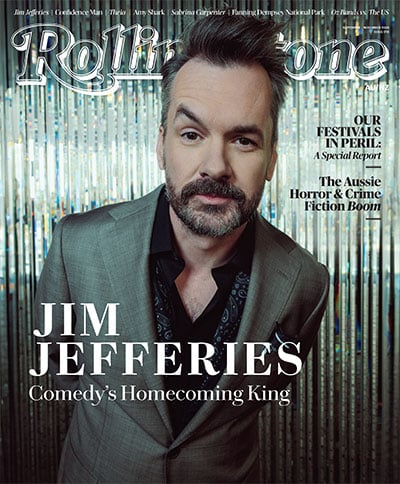The term ‘underground film’, moreso than ‘independent’ film, has always had an amorphous definition. In 1957,Underground Filmswas the title of an essay by New York film critic Manny Farber, in which he banged the drum for the B-movie craftsmen of the era – “such soldier-cowboy-gangster directors as Raoul Walsh, Howard Hawks, William Wellman” – whose art collectively “played an anti-art role in Hollywood”, consequently undervalued by critics in favor of more ostentatious fare. However, after the mention of underground films in the essay’s title, it’s conspicuously absent from the remainder of the piece, suggesting the slipperiness of the term from its very beginning.
So, what is an underground film? “That’s a large question, because it has got a real historical grounding,” explains Sydney Underground Film Festival co-director Stefan Popescu (who co-directed the festival with Katherine Berger).“Traditionally, underground cinema relates to low-budget filmmaking, and it’s got roots in transgressive cinema, and also experimental cinema… For us, today, to call the festival ‘underground’, it’s more of a gesture in a way, because personally I believe there’s such a blurring of boundaries between mainstream and independent and transgressive. Now it’s just a big melting pot.” The chief curation principle behind the festival, then, is “about searching out adventurous cinema, and cinema that’s doing something different, that’s not trying to uphold the status quo – whether it’s economic, or cultural or ideological”.
This year’s Sydney Underground Film Festival lineup reflects what its programmers deem lacking from the major festivals, but also the unstable definition of “underground film”, in accordance with the fractured global landscape of cinema. Festival highlights include the much-publicised Paul Schrader/Bret Easton Ellis/Lindsay Lohan collaboration The Canyons, the first film in 25 years from midnight movie pioneer Alejandro Jodorowsky The Dance of Reality, a hair metal mockumentary Discoverdale and special screenings of unintentional comedy favorites like Troll 2, Birdemic, and The Room.
While underground cinema purists (whatever that is) might on first glance raise an eyebrow at the inclusion of a Lindsay Lohan movie in the program, Popescu offers that The Canyons is absolutely of a piece with the festival’s ethos. “[The film] was crowdfunded, they voted on certain things, voted on casting … it was a really different model, in terms of traditional filmmaking. So for a Hollywood name to do that sort of thing I thought was really interesting.”
On the other hand, the transgressive side of underground cinema is well-represented in the various short film programs, with compilations like Love/Sick, LSD Factory and The Best Of The Fetisch Film Festival offering the kind of experiences that you won’t get from Tropfest. “If you look at the shorts, there might be one that had a bit of government support, but [otherwise] they’re self-funded, crazy projects. So that’s definitely an element that we’ll always retain”, says Popescu.
The festival wouldn’t be what it is without a controversial title, and one whose mere screening isn’t a guarantee is Unlawful Killing, an documentary exploration of Princess Diana’s death and the cover-up conducted by the British press, which Popescu argues should not only stir debate but defy expectations built up by its logline. “Keith Allen (Lily Allen’s dad), made this film two years ago. It was privately screened at Cannes, and the only public screening it’s had before us was at the Galway Film Festival in Ireland. Since it’s been screened two years ago, it’s been painted as a poor documentary, and completely conspiratorial, and some people say it’s defamatory, but it’s not at all … it’s really a summary of the inquest.”
BY IAN BARR
Sydney Underground Film Festival runs from September 5-8 at the Factory Theatre.
































